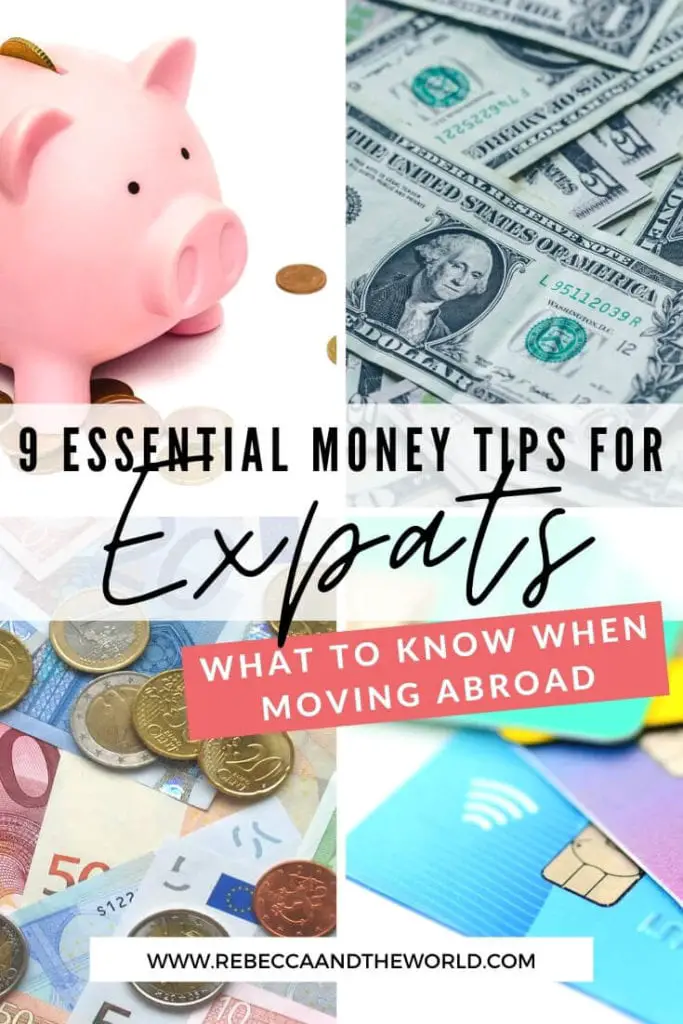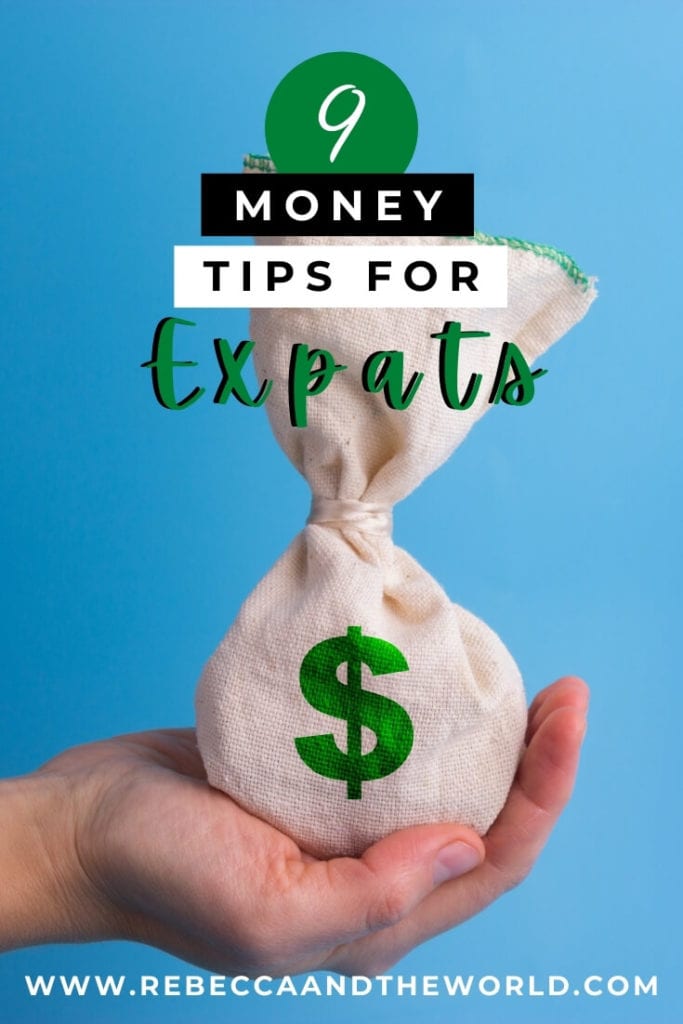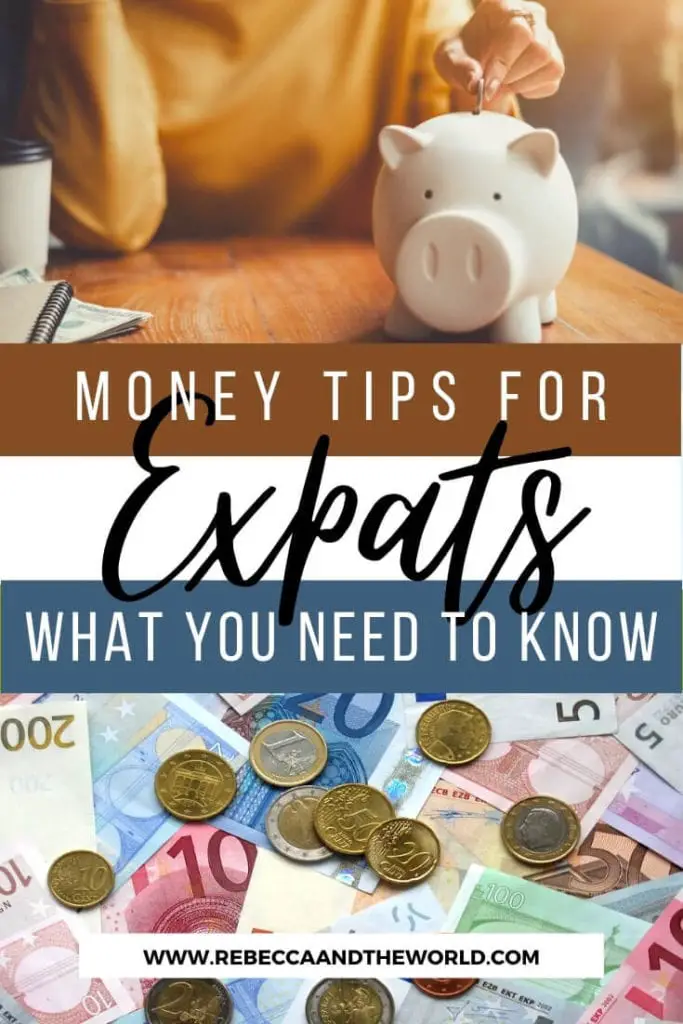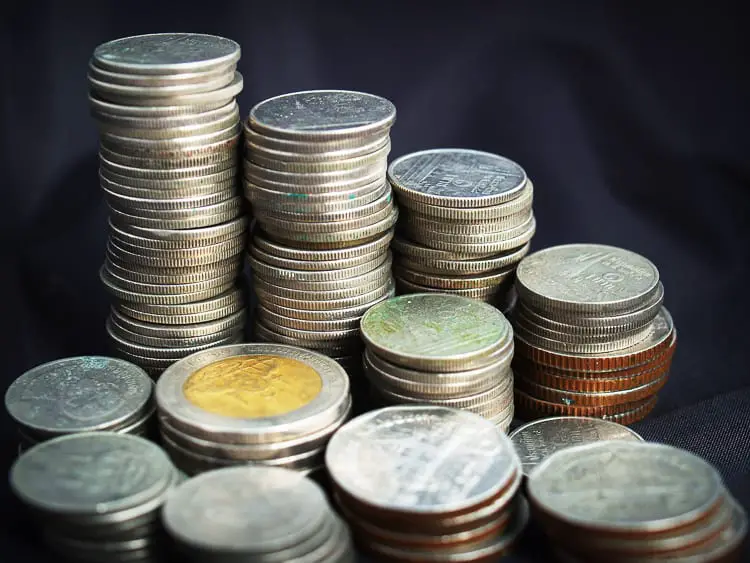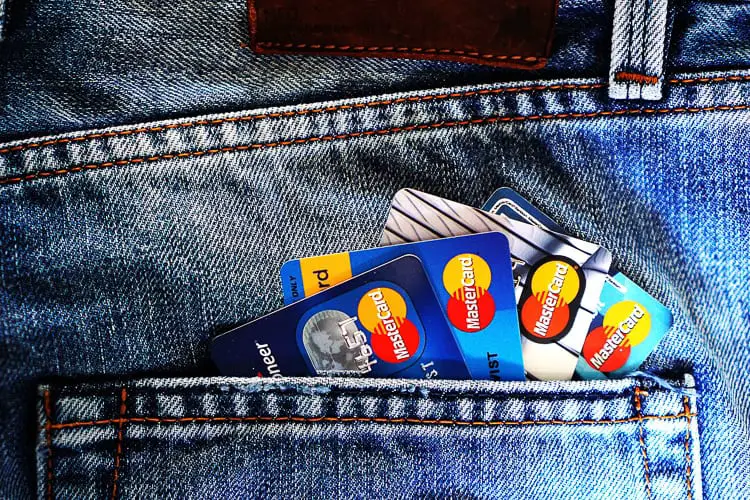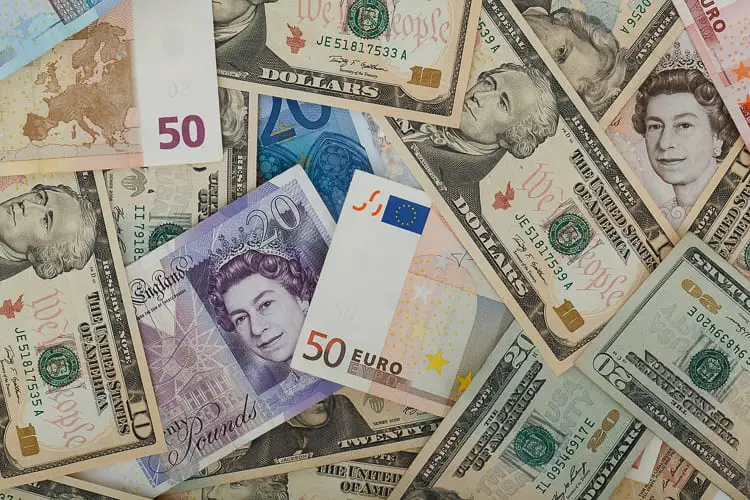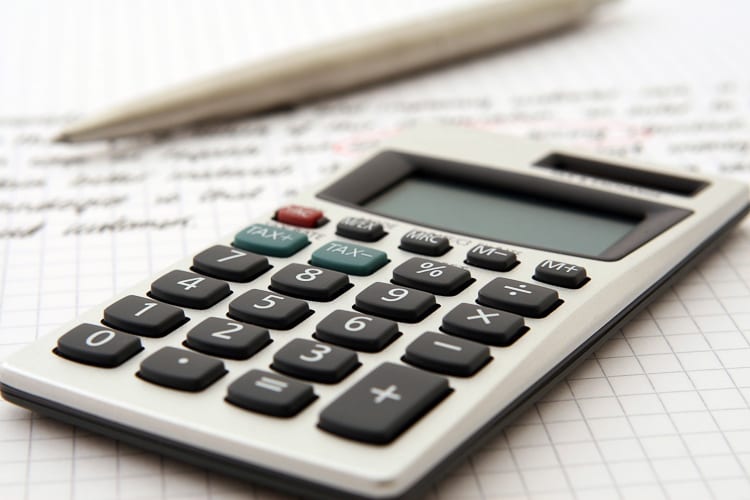Bank accounts. Credit cards. Bank fees. Taxes. Foreign currency exchange. If you’re anything like me, they’re all enough of a mystery to me in my OWN country. But what happens when you move overseas and find yourself baffled by a foreign banking system? How exactly should you manage your expat finances? It’s the least exciting part of becoming an expat, but it’s gotta be done.
Managing your money as an expat can be challenging. In some countries it’s downright frustrating. Over the years I’ve made plenty of mistakes and probably unwittingly wasted a lot of money along my expat journey. Through those mistakes, though, I’ve discovered a few tips and tricks, so I’m here to help you with some advice on how to manage money abroad as an expat.
Save this guide to managing expat finances to Pinterest by clicking the “Save” button on one of the images below.
Disclaimer: The below tips are what I’ve learned along the way and should be taken as guidance only. I’m obviously not a qualified financial adviser or accountant so make sure you do your own research and consult an expert if you need!
Tell your bank you’re moving
First up, make sure you tell your bank that you’re moving abroad! There have been a few occasions on our travels when I couldn’t get money out of an ATM because I’d neglected to tell the bank I was heading overseas. It’s not fun not knowing when you’ll be able to access your own cash.
Don’t forget to give the bank an alternative mailing address so they can send your monthly bank statements (your mum and dad or a trusted, responsible friend), or set up email notifications (which is better for the environment!).
Keep your home bank account open
While we’re on the topic of banks accounts, keep your bank account at home open, even if you don’t think you’ll be moving back home anytime soon. It’ll come in handy if you have to pay any bills back home or transfer money to family. It’s also a great place to stash some emergency cash (more on that later). Check the bank account fees to make sure that you won’t end up paying any unnecessary fees. If that’s the case, then find a no-fee bank account.
Get a foreign exchange fee-free credit card
Not everyone’s a fan of credit cards, but I think they’re so handy when used responsibly.
To start you off for your move abroad, find a credit card in your home country that doesn’t charge foreign exchange fees. These days, most banks have one or two options to choose from. Some cards even allow you to withdraw cash from other ATMs without charging fees.
You’ll use this credit card as a backup option until you can set up a local bank account and credit card.
As always, make sure you’ll be in a position to pay it off each month! There’s no point having a credit card if you can’t afford to pay the balance each month, as you’ll just end up sinking into useless debt.
Conversion rates
Make sure you know the exchange rate between your home country currency and your new currency so you can quickly calculate costs in your head and know that you’re sticking to your budget. Foreign money often doesn’t feel “real”, especially when you’re dealing with currencies that deal in larger denominations than you’re used to! I still remember handing over $10,000 notes in Vietnam and having no real clue about their value!
If maths isn’t your strong point (ahem, me!), there are so many apps out there that can quickly calculate a specific amount for you. My favourite is the XE app and I always have a handful of the most common currencies loaded in there for quick reference.
Set up a local bank account
Before you arrive in your new country, research the requirements for a bank account. In some countries it’s fairly easy, but in others you need to prove residency or be on a certain type of visa to open up a bank account.
In Argentina, we had to show residency in the country before we could open a bank account. Many of our friends were living in Argentina on tourist visas, and it was impossible for them to open a bank account. When we lived in Papua New Guinea, we had no issue opening a bank account. Every country’s different.
Setting up a bank account should be one of your top priorities when you arrive. It means you’ll get paid (if / when you have a job) and be able pay your local bills online.
Speaking of, from the beginning, figure out how to transfer money from your home country bank account to your new bank account so you have a lifeline to your savings back home. It didn’t take me long to work out that because of Argentine financial issues, I couldn’t transfer money from my Australian bank account to our Argentina bank account, which was a huge pain!
Find a way to transfer cash internationally
If you find yourself in that situation, look elsewhere. Besides, banks give terrible exchange rates so you’re never going to get good value by transferring money directly between your bank accounts.
There are plenty of currency exchange options out there and one of my top tips for managing expat finances is to find a company that can transfer money for you.
When we moved to the United States, we used a mix of OFX and Wise to exchange money. The customer service is great and the rate is far, far better than what we get by transferring money directly from our Aussie bank account to our U.S. bank account.
Have emergency cash on hand
I strongly advise you to land in your country with some emergency cash in hand – just in case. You never know when you might need money for unexpected costs in your new country.
Throughout our expat life (except for when we lived in the U.S.), we’ve always had a safe in our apartment or house with some spare cash in it. This was especially important in Argentina where it was so difficult for us to get access to cash because the ATM fees were high and we couldn’t always rely on the ATMs even having enough money for us to withdraw.
Seriously, to get Argentine pesos I used to have to call a guy to change money. I’d take a stack of U.S. dollars downstairs in a paper bag and get in his car. He’d hand me a paper bag of pesos (always a way thicker stack than I’d given him!) then he’d drive around the block and drop me back off in front of my apartment in case someone had been watching us. It was nerve-wracking but the easiest way for me to get pesos!!
And let’s be clear, a night out drinking with new friends is NOT an emergency.
Have a stash of cash in a bank account you can’t touch
Similarly, make sure you have some cash in a bank account that you can’t easily access. This will come in handy if you ever need to make an emergency trip back home or have some other unexpected money drama. It makes most sense for this to be in a savings account with your home country bank.
And, just because you’re living overseas doesn’t mean you should stop saving money or directing money into your superannuation or retirement fund (boring, I know!). You’ll be thankful for this money years down the track.
Get your taxes in order
Ah, taxes. As they say, there’s only two things certain in life: death and taxes.
If there’s one thing I’ve learned about being an expat it’s that taxes suck. I feel like I’m constantly filling out tax forms and providing data. At one stage I had to submit tax returns for THREE different countries in one year!
So, while it’s not the most fun of topics, do your research about the tax requirements in both your new and home countries. Some countries have tax treaties or agreements whereby even if you’re not making any money in one country, you’ll still be taxed in another country (double taxation I believe it’s called – it sounds awful!). Yep, expat tax can be confusing.
In some countries, depending on the number of days you’re in the country you’ll be taxed (for example, if you’re in the U.S. for 183 days you’ll be taxed on any income made, including – potentially – any non-U.S. income).
In other countries, you’re lucky and don’t have to pay taxes in your home country if you’re living abroad.
Everywhere is different, so find out what applies to you before you go so there are no nasty surprises come tax time! This is probably a good time to get some financial planning advice.
So, if you’re a new expat trying to figure out how to manage your expat finances, I hope this article has provided you with a few tips and tricks to consider. Happy saving and spending!
EXPAT LIFE – TIPS FOR BECOMING AN EXPAT
Looking for more advice on becoming an expat? I’ve got more articles than just this one on expat finances, so check them out:
- Surviving expat life: Top tips for new expats
- The best cities for expats
- How to deal with culture shock as an expat
- How to settle in to a new country as an expat
- Tips for surviving Christmas abroad as an expat
- Read about other expats’ experiences in the Expat Tales series
Expats, how do you manage your expat finances? Do you have any tips to share? Let me know in the comments below.
This post was originally published in February 2019, and was updated in September 2020.

